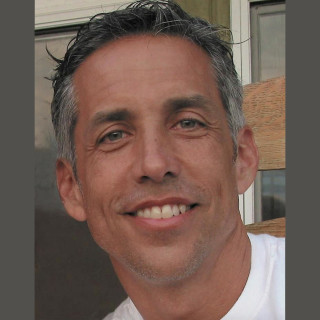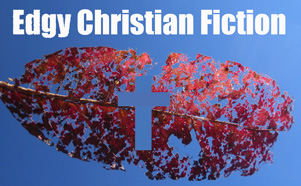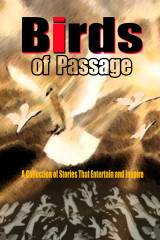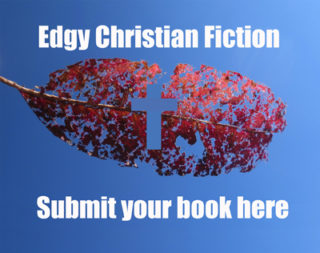
Greg M. Dodd
1. What inspired you to write the short story that was featured in Birds of Passage?
I’ve always been intrigued by the Apostle Paul’s life story. After meeting Christ on the road to Damascus, literally everything that defined his life was turned upside down. In a conversation with my wife last summer about how our faith can sometimes cost us relationships, I wondered out loud about Paul. Surely, he paid a heavy personal price for his new faith. I know some scholars question if he had been married and widowed at some point before his conversion, but I began to wonder if his teaching and doctrine on marriage would still hold-up if something else had happened: What if he was married at the time he left for Damascus? And what if his wife left him over his faith in Christ? So, “Letters from Damascus” was my attempt to add a deep, personal – albeit fictional – element to Paul’s backstory, while remaining true to the teaching in his real epistles. It was a fun, challenging project.
2. How long have you been a writer and how did your interest in writing start?
My interest in writing began 25 years ago when I conceived the idea for a story about time travelers’ involvement in the JFK assassination. I outlined it – beginning to end – and began writing. But when my son was born later that year, my draft and notes went into a drawer and eventually into the attic. Of course, when Stephen King published “11/22/63” a few years ago, I told everyone he must have gotten into my attic somehow. I may still write that story one day, but I finished my first novel, “A Seed for the Harvest” in 2015. I’ve been writing fairly regularly since then. It’s a nice creative outlet for all the ideas that flow through my head.
3. What would you like to accomplish as a writer?
My goal is to give life to interesting, relatable characters and tell stories through them that point people to a relationship with Christ. If my writing can touch just one person in that way, it will be worth it.
4. Who has influenced your writing? How?
I love the research that goes into Michael Crichton novels and the blunt story-telling of Cormac McCarthy. But I would have to say Tony Earley’s novels “Jim the Boy” and “The Blue Star” finally gave me the inspiration I needed to write. The way he connects you to his characters and the simple, natural stories that come from them fascinated me. I remember thinking, “Wow, I want to write stories like that.” As far as writing talent, I can’t come close to Tony Earley, but style-wise, I think he was my biggest influence.
5. Do you write on a regular basis or sporadically and when and where is your favorite time and place to write?
I write sporadically, usually very early in the morning when it’s quiet. But once a story starts coming to me, it’s hard to stop. My mind will keep processing it 24×7, even in my sleep. I actually dreamed several story lines of “A Seed for the Harvest.” I’d wake-up at 3:00 in the morning and jump out of bed and start writing until I had to go to work. But one rule I have for myself is that when writing starts to feel laborious, I stop. My best, most creative work comes naturally; I try not to force it.
6. What book and/or short stories have you written, besides the short story in Birds of Passage?
My first novel was “A Seed for the Harvest.” It won a Silver Medal for Christian Fiction in the 2015 Independent Publisher’s Illumination Awards. I also contributed a short story for the Christian anthology “Precious, Precocious Moments” through Grace Publishing. I’m currently working on the sequel to “A Seed for the Harvest” titled “The Last Harvest.”
7. Do you read Christian and secular novels or just Christian works? Do you have a favorite author, can be Christian or non-Christian?
Most fiction I read is secular. I enjoy reading screenplays and books that formed the basis for movies. It’s always interesting to compare the writer’s original intent to what made it to film. But I also enjoy catching up on classic novels that I may have missed reading.
8. As a Christian author, do you plan a faith message before you start writing or does your faith message grow out of writing a particular story? If no faith message in your writing, why not?
I would say that the faith message I want to convey comes first. Everything else flows from that central point. With “A Seed for the Harvest,” the message was a Christian’s responsibility for personal evangelism. The inspiration came from a question I posed to myself while driving to work one morning: “What would you do if you didn’t have to work, pay bills or take care of anyone and could just serve God? What would that look like?” The answer that came to my mind was, “I’d travel around telling people about Jesus.” The story for the novel flowed from there.
9. Do you outline every chapter of your story, or do you simply let if flow without a preconceived idea as to where you might be headed?
Once I know the basic story I want to tell, the content for most chapters develops visually in my head. Scenes play like a movie in my mind. I’ll capture the basic theme of what I imagined in a spreadsheet or in a writing tool like Scrivener. But the writing process is then just an expression of what I “saw.” But, when I have well-developed characters, sometimes the dialog between them can take a life of its own – based on their personalities – and take the story down a path I didn’t anticipate. That’s where writing gets fun. I get to enjoy the twists and turns just like a reader would.
10. What is the biggest challenge facing you as an author in general? How about as a Christian author?
Readership. The people I’d most like to reach with my writing – those who are lost or dead in their faith – are the last ones pick up a Christian novel like “A Seed for the Harvest.” But I pray for God to use what He’s given me to write. As I mentioned before, if He can use my writing to bring one person to faith – or inspire a Believer to share their faith – then my job is done.
11. Tell me about your current project. What you are trying to achieve, how far along are you, when it will be ready, any particular challenges with the work, target audience, etc. ?
My current work is a sequel to my first novel. And while it continues the story and answers a few questions raised in “A Seed for the Harvest,” it’s very different from its predecessor. It’s more of a love story woven into the theme of God’s redemptive love for us. It may appeal more to the female reader than the first, but that target audience is still the same: People wondering what their purpose is in life and if faith really matters.
12. Given the choice, would you rather be an independent author or be traditionally published? Why?
That’s a great question. Being traditionally published would certainly enable me to reach a broader audience, but I know I wouldn’t have as much creative latitude as I do being an independent author. While it would be nice to have that choice, for now I’m content taking the independent route. I produce what I feel inspired to write, when I want to write it. That works for me.
13. Is there anything else about you or your writing that you would like to share?
If I could give one word of advice to any new writers, it would be “patience.” Be patient with your story development, patient with your editing process and patient with your time to market. Rushing any part of those three will cost you readers and revenue. You only get one chance to launch your work into the public space; make it count.
14. If someone wants to reach out to you, how should they do that? What is your preference?
I can be contacted through my website www.gregmdodd.com or directly by email at gregmdodd.com@gmail.com. I’m always happy to converse with readers or other authors.
To read more, order your copy of Birds of Passage.
Stay tuned for our next author interview with Peggy Payne.

 (
(
